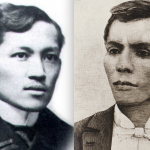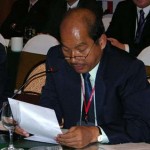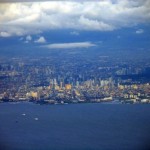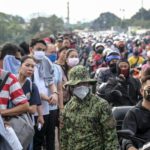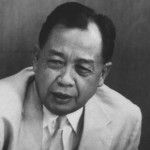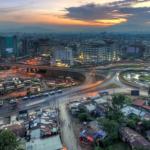Tacloban Tragedy: A Painful Wake-up Call
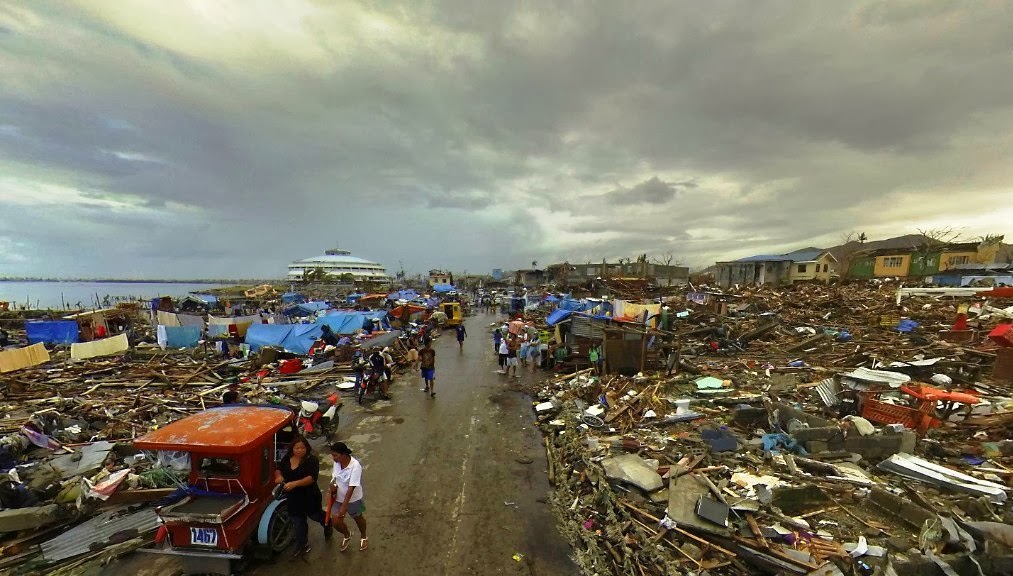
Note: This was originally a status update from FB that went viral. We were able to get permission to publish it from the lady who was able to speak with several survivors of Super-Typhoon Haiyan (local name: “Yolanda”) particularly the update of her own cousin who was in Tacloban when the disaster happened.
We’ve been instructed by her to edit some areas of the original post, in order to protect the witnesses who recounted their tales. But it is really important that we who were not there on the ground be able to read accounts like this. We’ve also modified some of the formatting and have italicized or set some of the text in bold where the original author sought to emphasize certain words or phrases.
The original Facebook status update was written on November 17, 2013, so please take note that “yesterday” refers to November 16 and calculate other time references accordingly.
Dear friends,
Yesterday we met and talked to six survivors, not including my husband, who only had to survive the aftermath. In truth, for all the images we see here in Manila, all of them say that we cannot fully comprehend the extent of the devastation unless we see it with our own eyes — or smell the stench of death that sticks to clothes.
“The storm only lasted for 5 hours,” says my cousin. Her home, situated in front of Robinsons Place Tacloban and MS grocery, suffered minor damage. It was only after going out to survey the damage that she only fully understood the severity of the situation: Everywhere she looked she saw people walking dazed, frantic, and calling out for loved ones. She is a volunteer, so she walked to the city hall to help out the local government, saw bodies lying by the side. She and other volunteers, she says, repacked goods during that first couple of days. It was also understood that they would be given a pack each. “We saw it loaded in a truck, the truck drove away, and we never saw it again,” she remembers. “The volunteers were also not given anything.”
Day One, she says, people waited patiently for help. By the end of Day Two, people became frantic. (Imagine finding your family members dead, your house completely damaged, no water and electricity, all compounded by no food.)
The first “looting” at Robinsons grocery was relatively peaceful, says another survivor who does not want to be named. People helped themselves and each other. “They were friendly, you can ask people where the baby food aisle is and they’d even help you go there,” says the survivor. People only took what they needed.
“It only became violent in days three and four, when people had been going for days without food or water and the bodies were still in the streets,” adds my cousin. Another grocery right beside Robinsons Mall, Market Savers, which is set up like Makro or S&R (warehouse style) stationed several armed men in the entrance protecting already-damaged goods. For 3 days, people ignored it. And then because starvation can make you do desperate things, on the fourth day, the guards were overpowered by a hungry, angry mob. Guns were reportedly fired, and some people got hurt.
“People have been neglected without nothing to eat for almost a week, their family missing, and you didn’t see any semblance of government,” says my cousin. Save for the organized criminals who attack the stores with guns and trucks, the ordinary looters only went in the stores days after inaction from the government, and only got what they needed. Another store, a corner mom and pop operation, was also looted, but the owners decided to just distribute the goods by “throwing” them from the second floor of the building. To be fair to the businessmen of the city, they gave away what they had. Another cousin of mine who owns gas stations gave away their gas before heading to Manila. My cousin also told a local official that somebody should go around with a megaphone to announce the schedule of the delivery of food, to calm the masses. “In one ear, out another, “ My cousin says, shaking her head ruefully.
There’s no use sugarcoating this: the government bungled the operations. The local government of Tacloban is ill-equipped; the national government’s attempts are half-hearted at best. I chatted on FB with the wife of the highest official of Tacloban and she believes the help did not come because of “politics.” She laments, “They are so evil, they are so mean.” “They” refers to the national government. I shiver to think that President Aquino would intentionally neglect the people of Tacloban because it is a Romualdez bailiwick. But, guess what, I wouldn’t put it past him. Pakabili po siya ng empathy at sympathy, dahil wala po nun ang presidente natin.
Still, because it is human nature to move forward, you can see the first signs of life in Tacloban. Some stores are already opening — yesterday, too, some businessmen who are now in Manila met to discuss the economic future of the city, yet some will be forever boarded up. How can you recover when the chain of supply and demand is broken? The businessmen in the city lost their stocks, which amounts to millions. They have suppliers they are answerable to. Some of these goods were purchased on credit. In one fell swoop, all they worked hard for all their lives are gone, just like that. And then there are ordinary employees who now have no work and no means of income, because the offices will not be open in at least a couple of months. The scenario that looms for most: No house, no food, no money. There are those retirees who spent all their retirement money to finally purchase their own modest houses, and now they have nowhere to live. It’s hunger + helplessness + depression. Lesser people would have crumbled — but Warays aren’t getting sad, they’re getting mad.
Mr. President, people are not statistics. It only took one day—sorry, I meant five hours—for everything to change for them. Waraynons are naturally courageous and resilient, our ancestors after all were warriors, but we need help rising up from the rubble. You don’t think we’re even worthy of one day worth of your attention. You have not stayed even one full day to assess the damage.
Only 29 towns have been given relief—Leyte has more than 40 towns—7 days after the typhoon. The situation may be getting better, but not nearly fast enough for the millions of people at the mercy of a President who may care, but not nearly great enough.
The Wake-up Call
As you may already know, the issue of the national government’s unwillingness or inability to respond appropriately in providing relief to the victims of Supertyphoon Haiyan (aka “Yolanda”) is all related to the low quality of leadership over at the Palace. This is all a result of the election in 2010 of a man who was not only ill-prepared to assume the responsibilities and duties of being the top decision-maker of the country, but was totally unwilling to even try to get himself up to speed.
This was thanks to the dynamics of the Philippine system of government and the way elections occur within a Presidential System. Aside from all the research done by world renowned political scientists which has revealed numerous problems of presidentialism such as gridlock, a tendency to make extensive use of discretionary pork barrel funding, and a tendency towards greater corruption, our Presidential System has unfortunately caused many ordinary Filipinos — including highly educated ones — to tend to vote based on personality and name-recall. Presidential Systems tend to make people care less about platforms, programmes, and principles, and care more about “the personality of the person we voting for” and look at markers like “who his parents were” or “what surname does he have.”
Had we instead had a true Parliamentary System (not the fake/bogus one we had under Marcos’ martial law era or the French-style “strong president” semi-presidential system Marcos shifted to in 1981 when martial law was lifted), the Philippines’ electoral dynamics would have been very different.
In Parliamentary Systems, people do not care only about voting for who their local district representative would be but also care about who the party leader is of the party that the local candidate they choose belongs to. As such, instead of looking only at one personality, voters are forced to look at two main people: the local representative who will represent their constituency, and the party leader who will become the prime minister should his party win a majority of all seats. Since a vote for the local representative means a vote for his party’s leader as well, voters tend to think from within a “big-picture” perspective, putting more importance on the the party affiliations of the local candidates they vote for, knowing fully-well that their local candidates’ party affiliation will likely determine who will ascend to the post of Prime Minister, and which party’s members will constitute the Cabinet.
(Let’s take the UK’s example. When a person votes for the local member of parliament in his own district/constituency, he looks at what parties the candidates belong to.
One candidate might be named “John Smith” who represents the Conservative Party while another candidate named “George Jones” may represent the Labour Party. The Conservative Party is currently headed by David Cameron, while the Labour Party is headed by Ed Milliband. If the voter personally likes John Smith, he also has to consider that voting for John Smith represents voting for David Cameron to continue on as Prime Minister. If he doesn’t particularly like David Cameron for whatever reason, then the voter must then take a step back and look at what “John Smith” has in common with David Cameron: being from the same party and having Conservative Political Leanings. Does the voter agree with those political leanings? Well, that’s what the voter will be forced to deal with. Ultimately, in parliamentary systems, voters care a lot more about party platforms and their manifestos simply because of this electoral dynamic.
More importantly, it’s not just about who is going to be the Prime Minister. It’s about who will become the ministers. If a majority of the members of parliament come from the Labour Party, then the Prime Minister and his Cabinet of Ministers will all come from the Labour Party. If a majority of the members of parliament come from the Conservative Party, then the Prime Minister and his Cabinet will all come from the Conservative Party.)
This change in electoral dynamics goes a long way in improving the way people vote. It also changes the way politicians will campaign during elections. Since Presidential Systems are more about the candidates’ personalities and “who they are”, that’s what candidates and politicians concentrate on selling and what they stand for takes a back-seat. But in Parliamentary Systems, where party affiliation is of greater importance, candidates campaign more about what their own parties stand for. There is less of the “epal” credit-grabbing meant to gain name-recall among the populace. Instead, candidates in parliamentary systems are much more likely to talk about the ideas and principles that their parties stand for and plan to achieve as well as the programs and projects their parties plan to implement.
There are many other major advantages to Parliamentary Systems, including the absence of gridlock as well as the ease of replacing non-performing leaders such as ministers or even the prime minister himself. In addition, the Opposition plays an official and active role in scrutinizing the incumbent government’s policies and implementation thereof so that each minister is “shadowed” (aka “followed around” in meetings) by an official opposition counterpart known as the “shadow minister.” Each minister, including the prime minister, is shadowed by a member of the Shadow Cabinet. The Minister for Education is “shadowed” by the Shadow Minister for Education, etc, and the Prime Minister himself is shadowed by the Leader of the Opposition.
Come question period (which is at least once a week in open parliament), the Shadow Ministers each grill their corresponding ministers in government regarding their decisions and their performance. The most exciting question period of the week occurs when the Leader of the Opposition grills the Prime Minister. This constant scrutiny by the Opposition Shadow Cabinet of the Cabinet Ministers keeps all of them on their toes and prevents them from engaging in corruption, since the opposition and its shadow ministers are always in constant surveillance – looking for any sign of wrongdoing by the government that it can exploit in order to discredit the government and use to further their cause in seeking to take over. This constant surveillance by the opposition is why parliamentary systems have been proven to be generally less prone to corruption than presidential systems.
Imagine if we had a parliamentary system in the Philippines. Noynoy, Dinky, and Mar Roxas would be hard pressed to make excuses they way they did in front of journalists. Unlike journalists who tend to ask neutral questions, the opposition shadow cabinet tends to feature opposition leaders who are out to probe, grill, and cross examine government ministers in the open parliament. No more palusots. No more lame excuses. No more tolerance of incompetence. Noynoy or any other vote-magnet puppet simply cannot survive Parliamentary Question Period.
Post-Disaster Economic Reconstruction
It is also necessary that when thinking about the reconstruction efforts of all the affected areas, we must understand that we will need a lot of Foreign Direct Investments as the quickest way to help out in creating the much-needed jobs that will get people who have lost their livelihoods back on their feet.
Look at this graph of ASEAN’s 2012 Foreign Direct Investment in-flows:
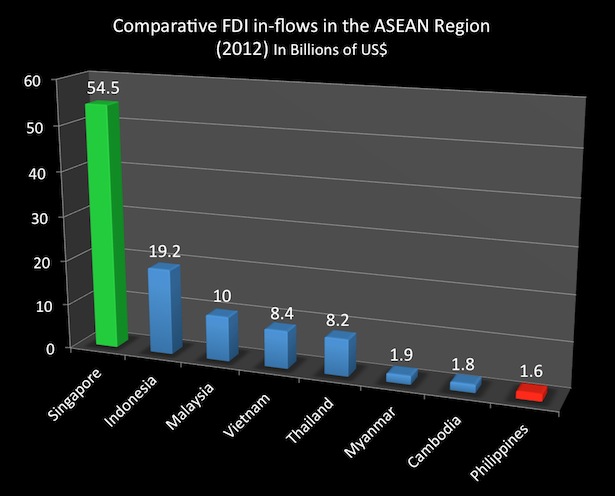
The Philippines is lamentably at the bottom of the ASEAN pile as far as attracting FDIs goes (which explains the high unemployment rate) and the super-typhoon’s destruction has obviously made things much, much worse as far as unemployment is concerned. We have continued to experience a dearth in domestic job-creation such that more than 10 million Filipinos have been forced to find employment abroad as OFW’s and emigrants. Now, an estimated 4 million people are said to have been displaced. How many of them lost their livelihoods? (Now we can see just how badly we need rapid job creation to occur in the Philippines on a massive scale.)
Removing all of those anti-FDI restrictions as well as the 60/40 ownership limits in the Constitution (as well as laws) will go a long way in attracting more and more investors to set up in the Philippines and create much needed employment for our people. Bringing in FDIs by removing anti-FDI restrictions has worked everywhere it has been tried and it is the secret of Singapore’s success and ascent into First World status despite having been poorer than the Philippines more than half a century ago. Massive FDI-attraction was the jump-starting spark that got China out Maoist Communist economic lethargy to become a major capitalist powerhouse and the second largest economy in the world, and it is also the key ingredient in Indonesia’s rapid rise within the ASEAN region.
We’re all so happy to receive aid and assistance from other countries but we have to realize that aid is temporary. Asking for aid long-term is mendicancy and that is unsustainable. As such, once it’s time to rebuild the Philippines and all the areas hit by disaster, we will start needing to earn our keep. We will need to work to earn some money for ourselves. Whether we like it or not, Foreign Direct Investments create employment opportunities and these pay salaries. We’re not asking for alms: we’re working for a livelihood.
Does it really matter if the companies we work for are foreign-owned versus Filipino-owned? Think about it — more than 10 million Filipinos are working abroad for foreign employers anyway. Bringing foreign investors in allows rapid job creation to happen in the Philippines so that our people can be with their families and find jobs without having to depart for faraway shores.
But lastly, we also need to make sure that when job creation does happen, it happens in the regions, not in the already overcongested Metro Manila where far too many rural peasants have gone in search of work to end up becoming the capital city’s urban poor. That’s why we need Evolving Federalism (aka “Region-based Decentralization”). We need to empower the regions in order to have the necessary autonomy they need to create their own pro-business economic policies that would be more conducive to fostering economic development and attracting investors – both Filipino and foreign.
Ultimately, when all three reforms are done, the Philippines can truly get back on its feet and turn itself around so that it ceases to be Southeast Asia’s laggard. This is not just about the reconstruction of the affected areas hit by the recent super-typhoon. This is about doing what we should started to do long ago in order to improve our country as the Philippines has continued to slide and get left behind by other ASEAN countries who used to look up to us.
Super Typhoon Yolanda (international name: Haiyan) ought to be the wake-up call that gets all Filipinos uniting behind this most important reform advocacy. This is, after all, for the benefit of ourselves and our future generations. The selfish Oligarchs and the ignorant anti-reform forces have held us back for far too long. It’s time all Filipinos learned more about these necessary reforms and started pushing for them so that we can achieve our rightful place among the successful and competitive countries of the world. Now is the time to spread the word!
CoRRECT™ the Constitution!
![]()
About the Author
 Orion Pérez Dumdum comes from an IT background and analyzes systems the way they should be: logically and objectively.
Orion Pérez Dumdum comes from an IT background and analyzes systems the way they should be: logically and objectively.
Being an Overseas Filipino Worker himself, he has seen firsthand how the dearth of investment – both local and foreign – is the cause of the high unemployment and underemployment that exists in the Philippines as well as the low salaries earned by people who do have jobs.Being Cebuano (half-Cebuano, half-Tagalog), and having lived in Cebu, he is a staunch supporter of Federalism.
Having lived in progressive countries which use parliamentary systems, Orion has seen first hand the difference in the quality of discussions and debates of both systems, finding that while discussions in the Philippines are mostly filled with polemical sophistry often focused on trivial and petty concerns, discussions and debates in the Parliamentary-based countries he’s lived in have often focused on the most practical and most important points.
He has a nephew and niece who are related to Noynoy Aquino which is why Orion really wants Noynoy to be able to succeed at reforming the flawed Philippine system via Constitutional Reform. Rather than having his nephew and niece suffer the consequences of being related to Noynoy who is turning out to be a failure, Orion would like Noynoy Aquino to do the right thing and regain the honor he has lost so that his own niece and nephew won’t have to suffer that stigma. Noynoy must get the ball rolling for Constitutional Reform.
Orion first achieved fame as one of the most remembered and most impressive among the winners of the popular RPN-9 Quiz Show “Battle of the Brains”, and got a piece he wrote – “The Parable of the Mountain Bike” – featured in Bob Ong’s first bestselling compilation of essays “Bakit Baligtad Magbasa ng Libro ang mga Pilipino?” He is the principal co-founder of the CoRRECT™ Movement to spearhead the campaign to inform the Filipino Public about the urgent need for Constitutional Reform & Rectification for Economic Competitiveness & Transformation.









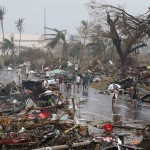

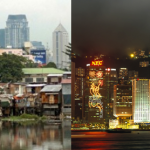


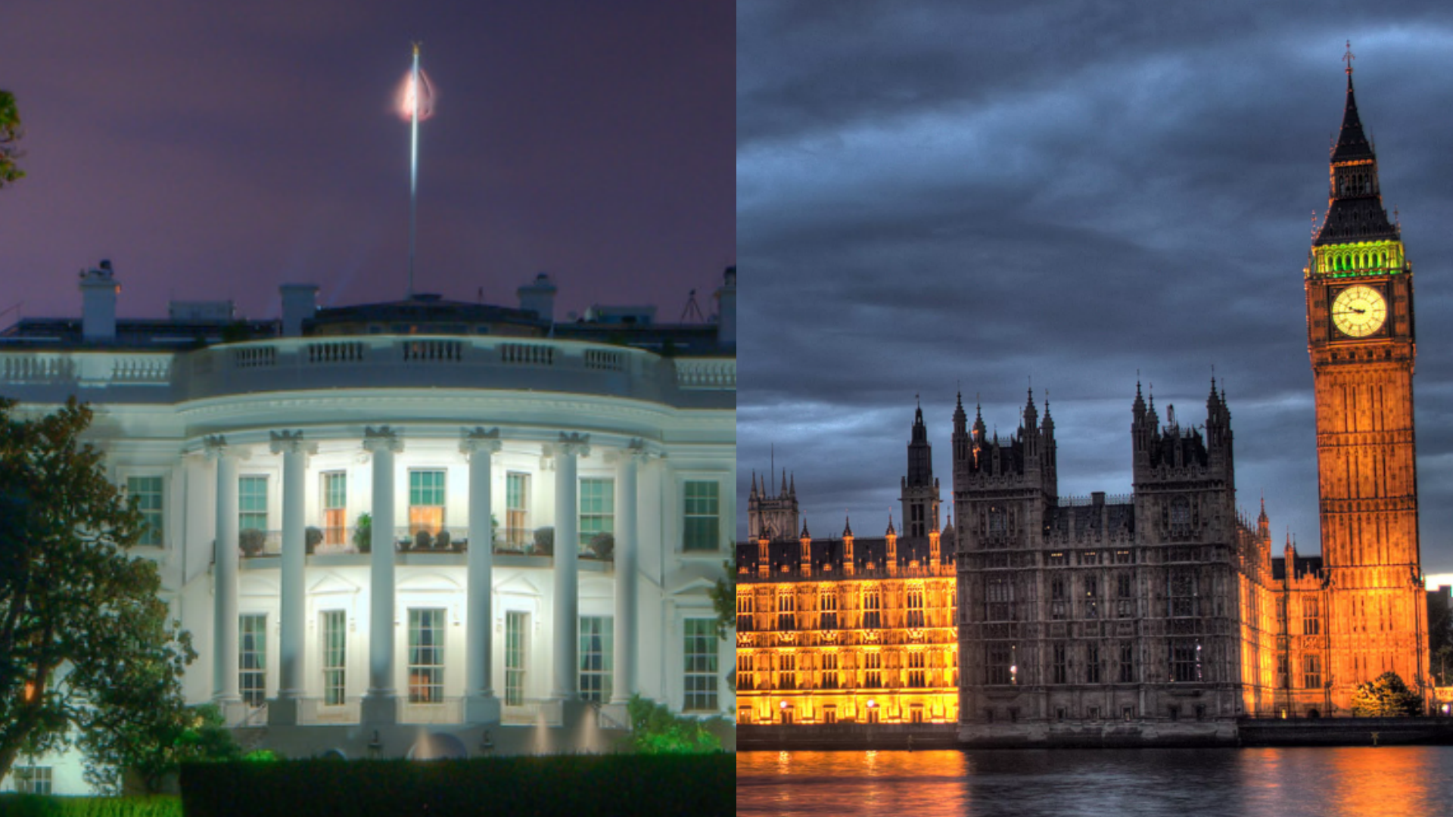

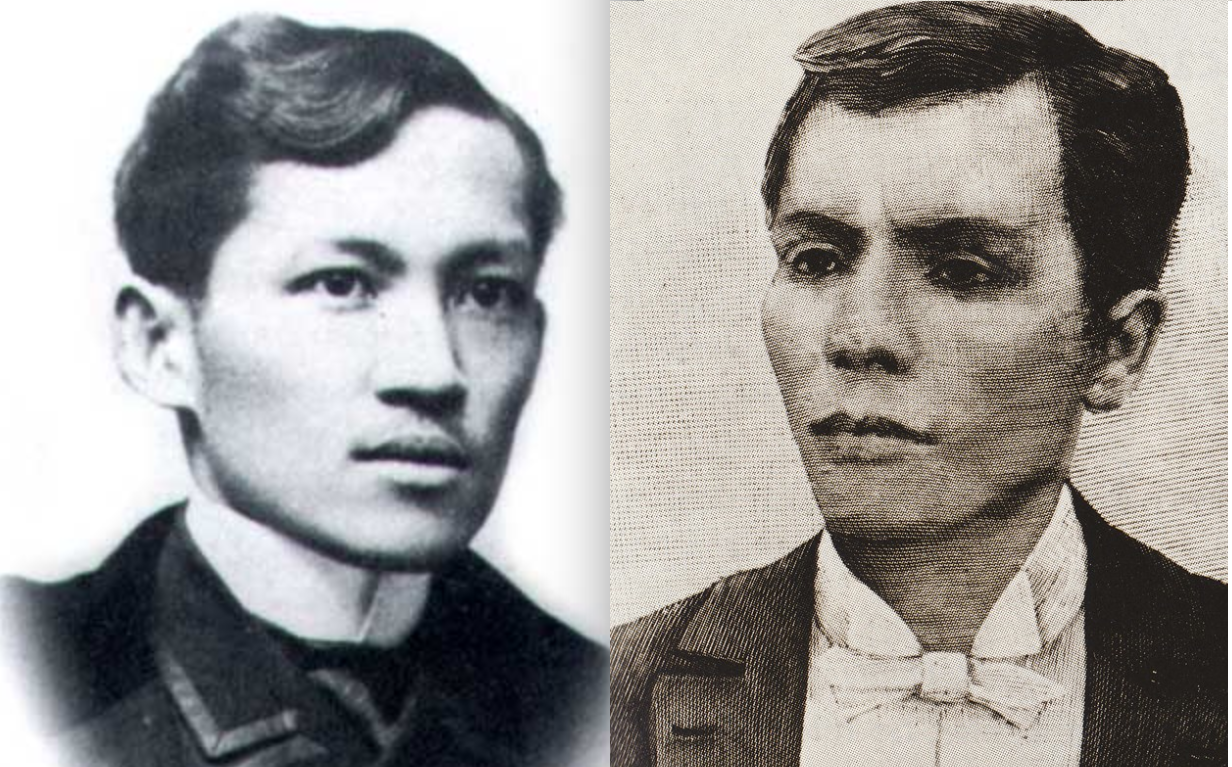
 I believe: This is a CoRRECT™ Video with a very positive message
I believe: This is a CoRRECT™ Video with a very positive message Walang Natira: Gloc-9's MTV Rap about the OFW Phenomenon
Walang Natira: Gloc-9's MTV Rap about the OFW Phenomenon




